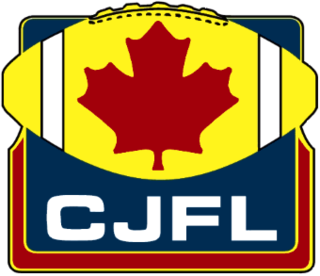Related Research Articles
The British Columbia Hydro and Power Authority, operating as BC Hydro, is a Canadian electric utility in the province of British Columbia. It is the main electricity distributor, serving more than 4 million customers in most areas, with the exception of the City of New Westminster, where the city runs its own electrical department and portions of the West Kootenay, Okanagan, the Boundary Country and Similkameen regions, where FortisBC, a subsidiary of Fortis Inc. directly provides electric service to 213,000 customers and supplies municipally owned utilities in the same area. As a provincial Crown corporation, BC Hydro reports to the BC Ministry of Energy, Mines and Low Carbon Innovation, and is regulated by the British Columbia Utilities Commission (BCUC). Its mandate is to generate, purchase, distribute and sell electricity.

Ontario Hydro, established in 1906 as the Hydro-Electric Power Commission of Ontario, was a publicly owned electricity utility in the Province of Ontario. It was formed to build transmission lines to supply municipal utilities with electricity generated by private companies already operating at Niagara Falls, and soon developed its own generation resources by buying private generation stations and becoming a major designer and builder of new stations. As most of the readily developed hydroelectric sites became exploited, the corporation expanded into building coal-fired generation and then nuclear-powered facilities. Renamed as "Ontario Hydro" in 1974, by the 1990s it had become one of the largest, fully integrated electricity corporations in North America.

Emera Incorporated is a publicly traded Canadian multinational energy holding company based in Halifax, Nova Scotia. Created in 1998 during the privatization of Nova Scotia Power, a provincial Crown corporation, Emera now invests in regulated electricity generation as well as transmission and distribution across North America and the Caribbean.

The Canadian Junior Football League (CJFL) is a national Major Junior Canadian football league consisting of 19 teams playing in five provinces across Canada. The teams compete annually for the Canadian Bowl. Many CJFL players move on to professional football careers in the Canadian Football League (CFL) and elsewhere.
Otto Emil Lang, is a Canadian lawyer and former politician.

The Manitoba Hydro-Electric Board, operating as Manitoba Hydro, is the electric power and natural gas utility in the province of Manitoba, Canada. Founded in 1961, it is a provincial Crown Corporation, governed by the Manitoba Hydro-Electric Board and the Manitoba Hydro Act. Today the company operates 15 interconnected generating stations. It has more than 527,000 electric power customers and more than 263,000 natural gas customers. Since most of the electrical energy is provided by hydroelectric power, the utility has low electricity rates. Stations in Northern Manitoba are connected by a HVDC system, the Nelson River Bipole, to customers in the south. The internal staff are members of the Canadian Union of Public Employees Local 998 while the outside workers are members of the International Brotherhood of Electrical Workers Local 2034.

The electricity sector in Canada has played a significant role in the economic and political life of the country since the late 19th century. The sector is organized along provincial and territorial lines. In a majority of provinces, large government-owned integrated public utilities play a leading role in the generation, transmission, and distribution of electricity. Ontario and Alberta have created electricity markets in the last decade in order to increase investment and competition in this sector of the economy.
Allison Hossack is a Canadian actress.
Union Gas was a major Canadian natural gas company based in Ontario. Its distribution arm serviced approximately 1.5 million customers in northern, southwestern and eastern Ontario. Union Gas has been a subsidiary of Enbridge since February 2017, when former parent Spectra Energy merged into Enbridge.

Reimer Express Lines Ltd., which did business as YRC Reimer, was a Canadian less than truckload (LTL) carrier and subsidiary of YRC Worldwide based in Winnipeg, Manitoba. YRC retired the Reimer brand in 2019 merging it with YRC's largest LTL subsidiary, YRC Freight.

Rebecca Belmore D.F.A. is an interdisciplinary Anishinaabekwe artist who is notable for politically conscious and socially aware performance and installation work. She is Ojibwe and member of Obishikokaang. Belmore currently lives in Toronto, Ontario.

Canada has access to all main sources of energy including oil and gas, coal, hydropower, biomass, solar, geothermal, wind, marine and nuclear. It is the world's second largest producer of uranium, third largest producer of hydro-electricity, fourth largest natural gas producer, and the fifth largest producer of crude oil. In 2006, only Russia, the People's Republic of China, the United States and Saudi Arabia produce more total energy than Canada.
FortisBC is a Canadian owned, British Columbia based regulated utility focused on providing safe and reliable energy, including natural gas, Renewable Natural Gas, electricity and propane. FortisBC has approximately 2,600 employees serving more than 1.2 million customers in 135 B.C. communities and 58 First Nations communities across 150 Traditional Territories.
Expenditures by federal and provincial organizations on scientific research and development accounted for about 10% of all such spending in Canada in 2006. These organizations are active in natural and social science research, engineering research, industrial research and medical research.
Through the 1996 Electric Utilities Act the Alberta's deregulated electricity market began.
According to the International Hydropower Association, Canada is the fourth largest producer of hydroelectricity in the world in 2021 after the United States, Brazil, and China. In 2014, Canada consumed the equivalent of 85.7 megatonnes worth of oil of hydroelectricity, 9.8% of worldwide hydroelectric consumption. Furthermore, hydroelectricity accounted for 25.7% of Canada's total energy consumption. It is the third-most consumed energy in Canada behind oil and natural gas.

The Westcoast Transmission Company Limited was a Canadian pipeline company founded in 1949 by entrepreneur Frank McMahon who saw an enormous opportunity to supply natural gas to the huge industrial and residential markets in the United States.

The history of electricity sector in Canada has played a significant role in the economic and political life of the country since wide-scale industrial and commercial power services spread across the country in the 1880s. The development of hydropower in the early 20th century has profoundly affected the economy and the political life in Canada and has come to symbolize the transition from "old " industrialism of the 19th century to a "new", modern and diversified, Canadian economy.

The Ukrainian Museum of Canada is a network of museums across Canada that promote Ukrainian cultural life, with a particular focus on experiences of the Canadian Ukrainian diaspora.
References
- ↑ Jarrell, Howard R. (1993). Directory of Corporate Name Changes . Scarecrow Press. pp. 341. ISBN 0-8108-2761-1 – via Internet Archive.
- 1 2 3 4 Musielak, Mark; Kish, Charlene; Lewis, William A., eds. (1999). The Blue Book of Canadian Business . Scarborough, Ontario: Canadian Newspaper Services International Limited. p. III-177. ISBN 0-9681016-3-1 – via Internet Archive.
- ↑ Staff (July 21, 1993). "Lang Appointment". The Star Phoenix. Saskatoon, Saskatchewan: Armadale. Canadian Press. p. B4 – via Newspapers.com.
- ↑ Musielak, Mark; Kish, Sharon; Lewis, William A., eds. (2002). The Blue Book of Canadian Business 2002–2003 . Toronto, Ontario: Canadian Newspaper Services International Limited. p. II-184. ISBN 0-9681016-6-6 – via Internet Archive.
- 1 2 3 Nutt, Rob (March 12, 1999). "Centra Gas sale nets $58 million for Westcoast". The Vancouver Sun. Vol. 114, no. 257. p. H6. Retrieved 29 Nov 2019– via Newspapers.com.
- 1 2 The Canada Student Employment Guide (8th ed.). Toronto, Ontario: Student Employment Network. 2002. pp. 134–5. ISBN 1-896324-40-1 – via Internet Archive.
- ↑ "Five-year gas contracts may save $50 per year". The StarPhoenix. Saskatoon, Saskatchewan: Armadale. Canadian Press. November 27, 1991. p. C6 – via Newspapers.com.
- ↑ "Province of Manitoba | v1 - Natural Gas and Propane Utilities". www.pubmanitoba.ca. Retrieved 2021-08-11.
- ↑ "Manitoba Hydro to buy gas utility". CBC. March 11, 1999. Retrieved 31 December 2021.
- ↑ Cattaneo, Claudia (June 22, 1998). "Centra rate hike request turned down". The Financial Post (Weekend ed.). Toronto, Ontario. p. 7 – via Newspapers.com.
- ↑ Staff (May 29, 1996). "Westcoast expands electricity business". Calgary Herald. Calgary, Alberta. p. C2 – via Newspapers.com.
- ↑ Staff (January 23, 1991). "ICG now Centra". The Province. Vancouver, British Columbia. p. 36 – via Newspapers.com.
- ↑ Westell, Dan (April 12, 1997). "Gas ruling seen as competition boost". The Financial Post. Toronto, Ontario. p. 12 – via Newspapers.com.